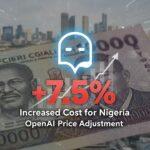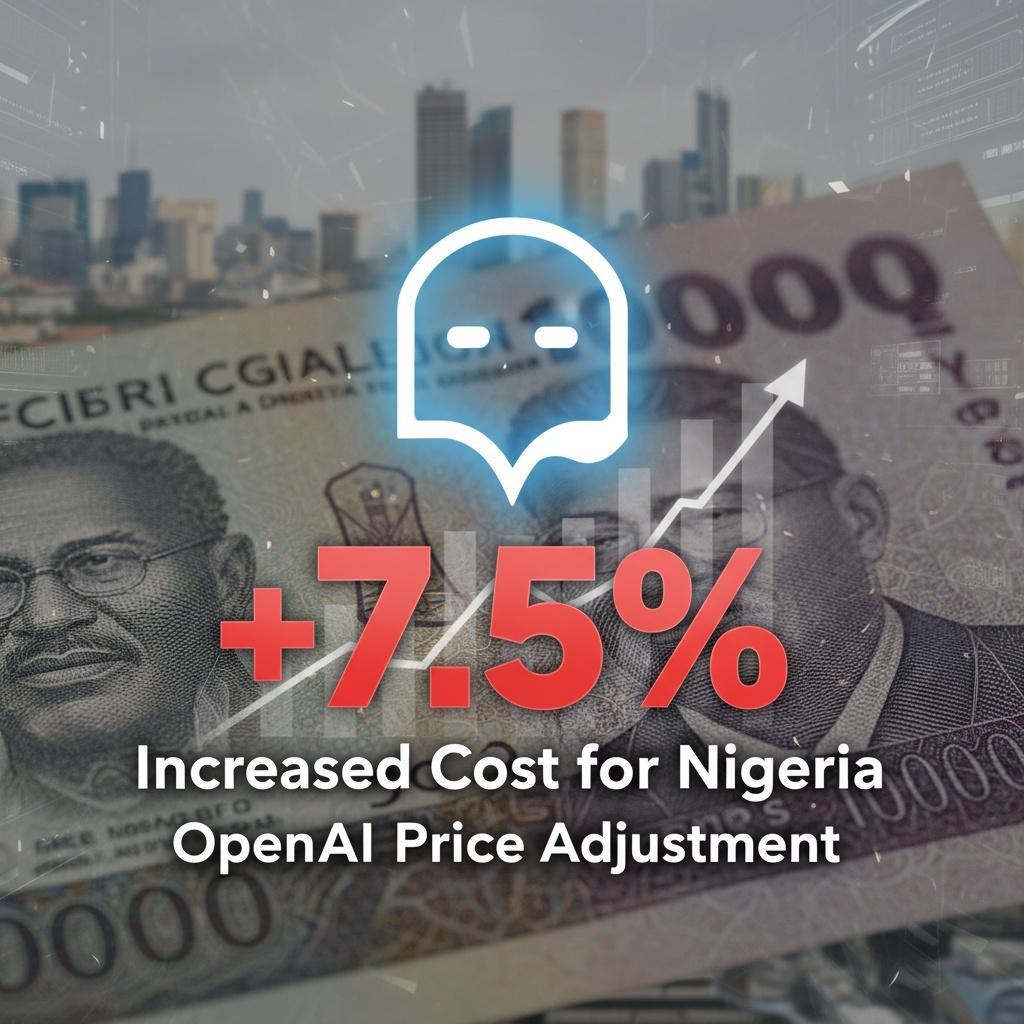OpenAI has recently updated the pricing for ChatGPT services in Nigeria by adding a 7.5% Value Added Tax (VAT) to the subscription fees. This adjustment is a response to Nigeria’s taxation policies, where VAT applies to most goods and services, including digital offerings like AI-powered platforms.
The 7.5% VAT rate was introduced by the Nigerian government in 2020 as part of its strategy to boost public revenue amid economic challenges. With the tax set to cover digital services, users of ChatGPT in Nigeria are now required to pay slightly higher costs compared to before the VAT implementation, impacting monthly subscription expenses.
Due to regional pricing variations, ChatGPT Plus subscription fees in Nigeria are generally lower than the U.S. pricing but with VAT included, users experience a cumulative increase. For example, a subscription that was previously under ₦1,900 – ₦2,000 monthly is now subject to the added tax, making the service marginally more expensive.
This change reflects broader global trends where governments are ensuring fair taxation of digital services to leverage revenue from the growing technology sector. OpenAI’s inclusion of VAT is an effort to comply with Nigeria’s tax regulations while continuing to provide accessible AI tools to local users.
Businesses and consumers alike face adjustments due to the VAT increase. While the government benefits from improved tax collections to fund public infrastructure and services, end-users may feel the pinch through slightly higher subscription prices, which could affect affordability for a portion of Nigeria’s tech community.
The VAT implementation also carries implications for how digital service providers structure pricing across regions, considering currency fluctuation, local economic conditions, and regulatory frameworks. OpenAI’s approach highlights the balance between global product offerings and compliance with localized financial requirements.
Nigerian consumers are advised to verify the current subscription pricing directly within the ChatGPT platform or through official OpenAI communications. Staying informed about pricing and tax implications helps users plan their usage and budget accordingly amidst these changes.
As digital innovation continues to expand in Nigeria and other markets, taxation policies like VAT on AI tools are becoming increasingly relevant. Observing how companies like OpenAI adjust their pricing structures offers insight into the evolving relationship between technology, economics, and regulation in Africa’s growing digital economy.






